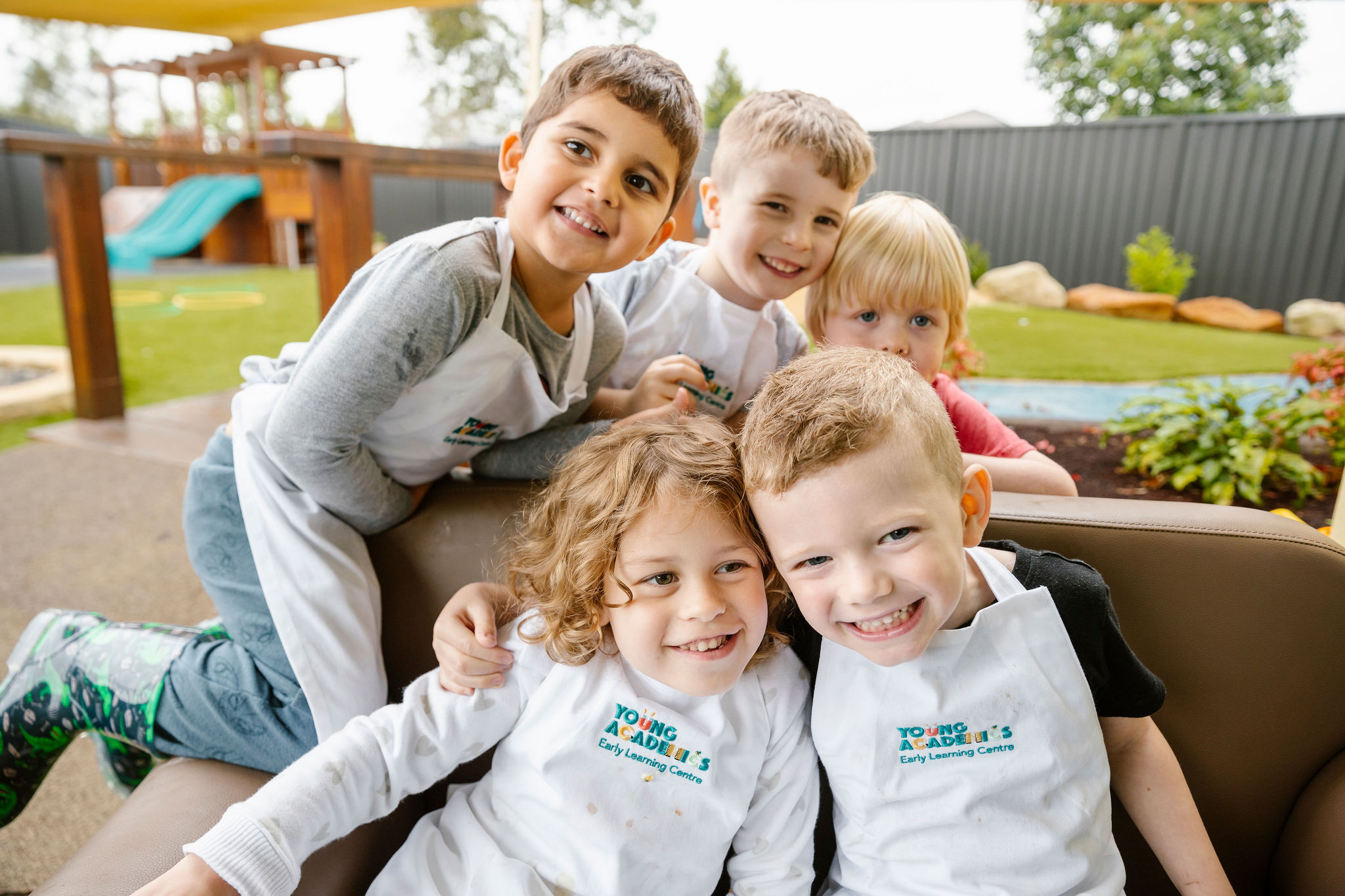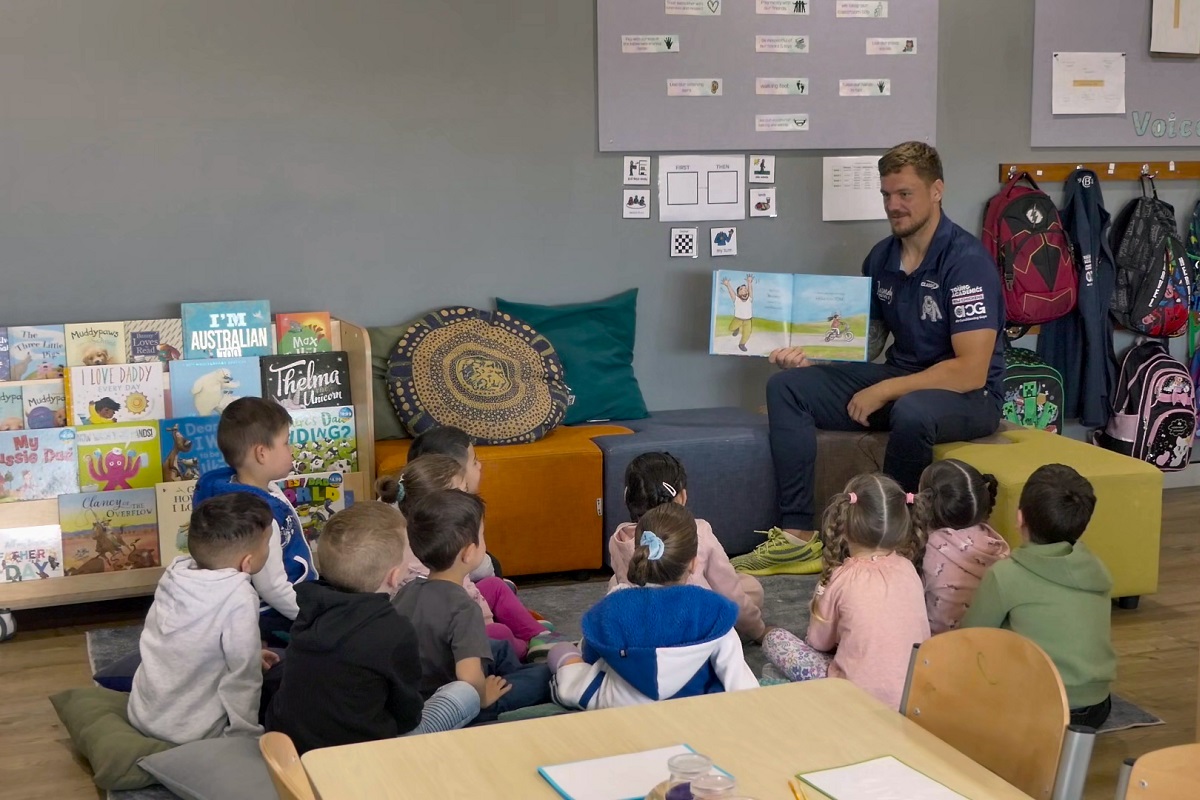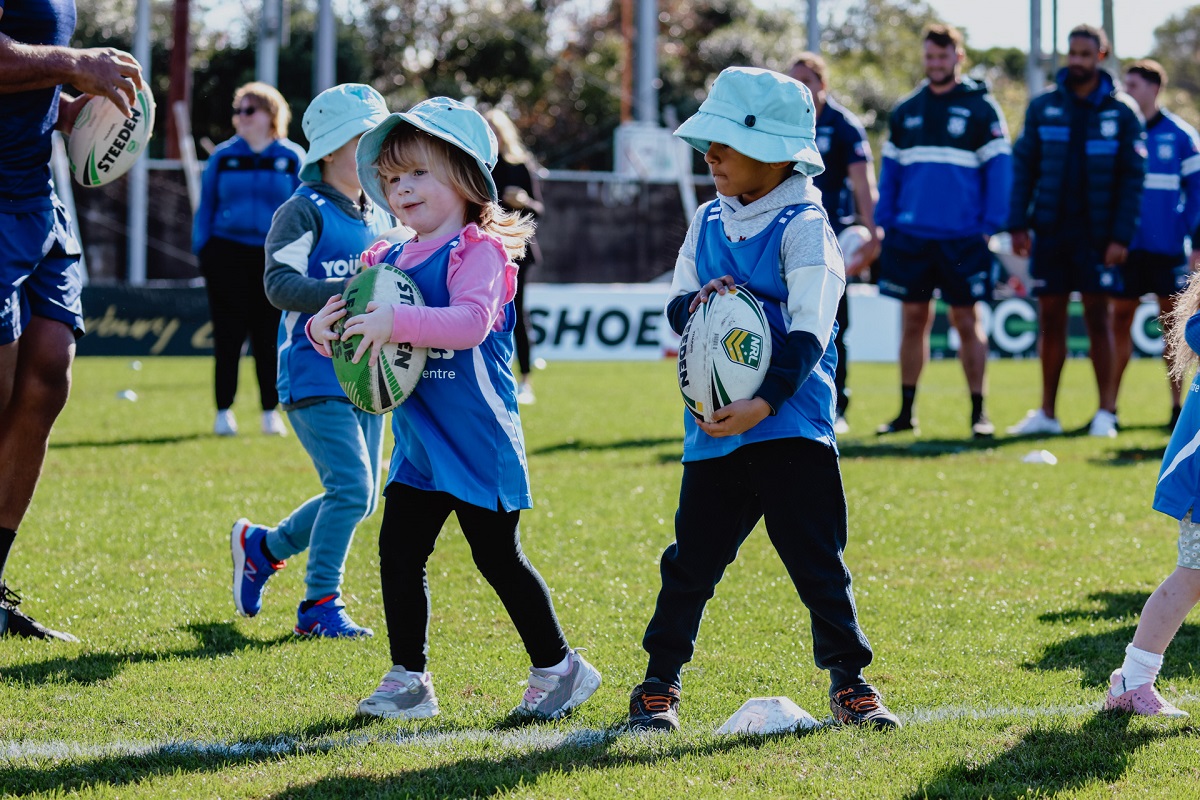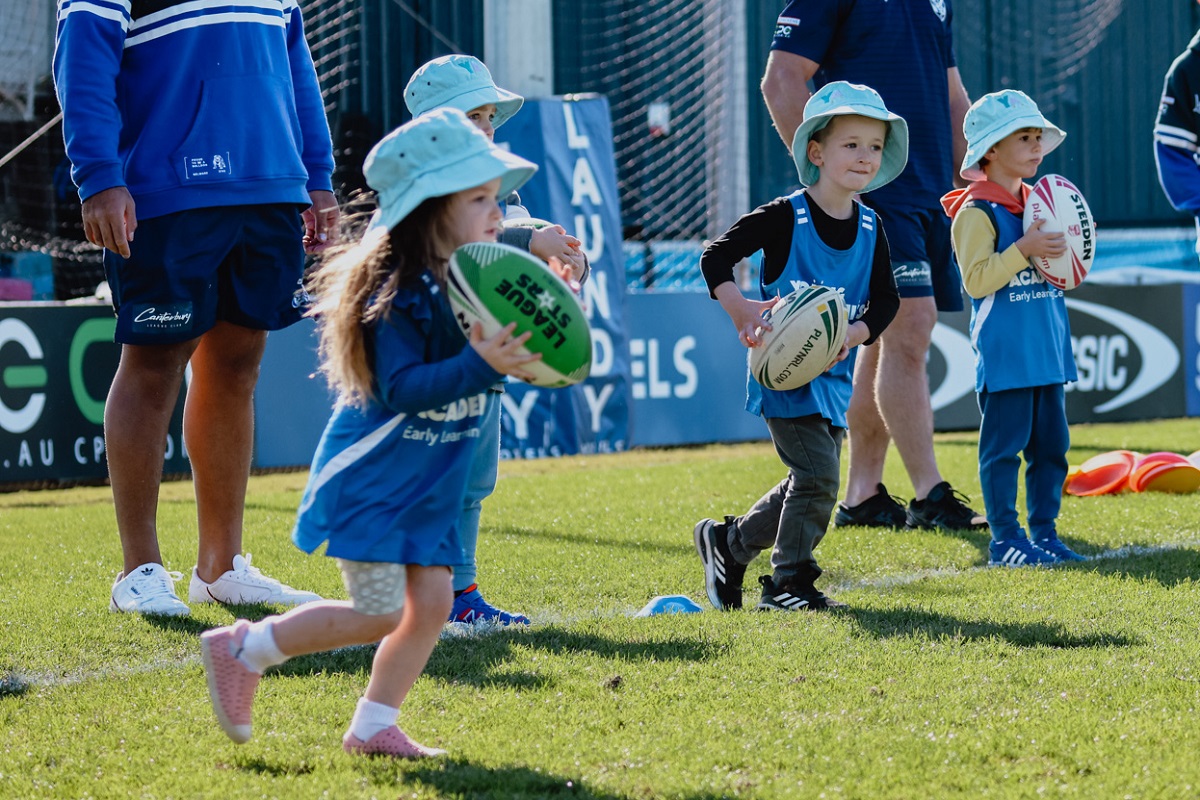“Nobody wants to play with me.” For parents picking up their child from pre-school, it’s the line you never want to hear… and it leaves you feeling helpless and sad. While making friends and navigating conflict are skills children will need to largely learn on their own, parents can definitely help pave the way by practising friendship skills, such as taking turns and managing disagreements.
It’s simple things like sharing, listening to the point of view of others, cooperating, taking turns and managing conflict – such as working out who is going to play what role, or dress up in which costume during a game of make-believe – that can go a long way.
If your child has siblings, or spends time with cousins or friends, praise their behaviour when they listen to each other before making a decision about what to play, or when they listen to each other tell a story at dinner or snack time.
Part of encouraging successful friendships is learning to win and lose, something you can help your child practise by playing board games, simple card games such as UNO, or having running races or playing sports as a family.
Like anything, friendship is a skill which needs practice, so if your child finds it difficult to make friends – or you want to give them a little helping hand before beginning formal early learning – then organise short playdates with one or two friends at a time rather than with a large group, either in a park or at home. It’s a good idea to provide some resources to help initiate the activity, whether that’s bats, balls or sand toys for the park or art and craft activities for dress-ups or indoor play.
While it’s important for children to learn to work things out on their own, it’s equally important to stay close to keep an eye on things – not to hover over them and control every detail – but to be nearby in case there’s a need to step in and redirect before things escalate. “I like the way you two worked that out together”, or “you’re doing a terrific job of taking turns playing with the play dough”.
But what if your child likes to play alone?
Plenty of preschool children like doing their own thing, and at this stage children often play alongside one another but without engaging, which is perfectly normal.
However, if your child wants to join in but doesn’t know how, feels left out, or seems afraid to play with others, it’s probably time to step in – or at least chat to their preschool educator to seek their perspective.
Suggest different ways your child could initiate play, then ask others to join in, such as starting to build a castle in the sandpit and asking others if they want to help make it extra tall or collecting sticks and leaves together to use in a collage. To help boost your child’s confidence to join in play, suggest they start by observing the activity – or do this in a playground setting on the weekend – then ask to play a role, such as asking children playing ‘schools’ to be a new student in their class, or if they’re playing ‘house’, offering to be a visitor to the house or a friend coming to play.
For those days when your child is on the receiving end of the dreaded “you’re not my friend” comment, explain that it’s normal to feel hurt if you’re left out of a situation – it happens to adults too – but to try to approach each day as an opportunity to start afresh… and not hold grudges.
Of course, if this type of behaviour is happening frequently, talk to your child’s educators so they can keep an eye on the situation and offer guidance if necessary – or reassurance if they see that your child is playing happily whilst in care.
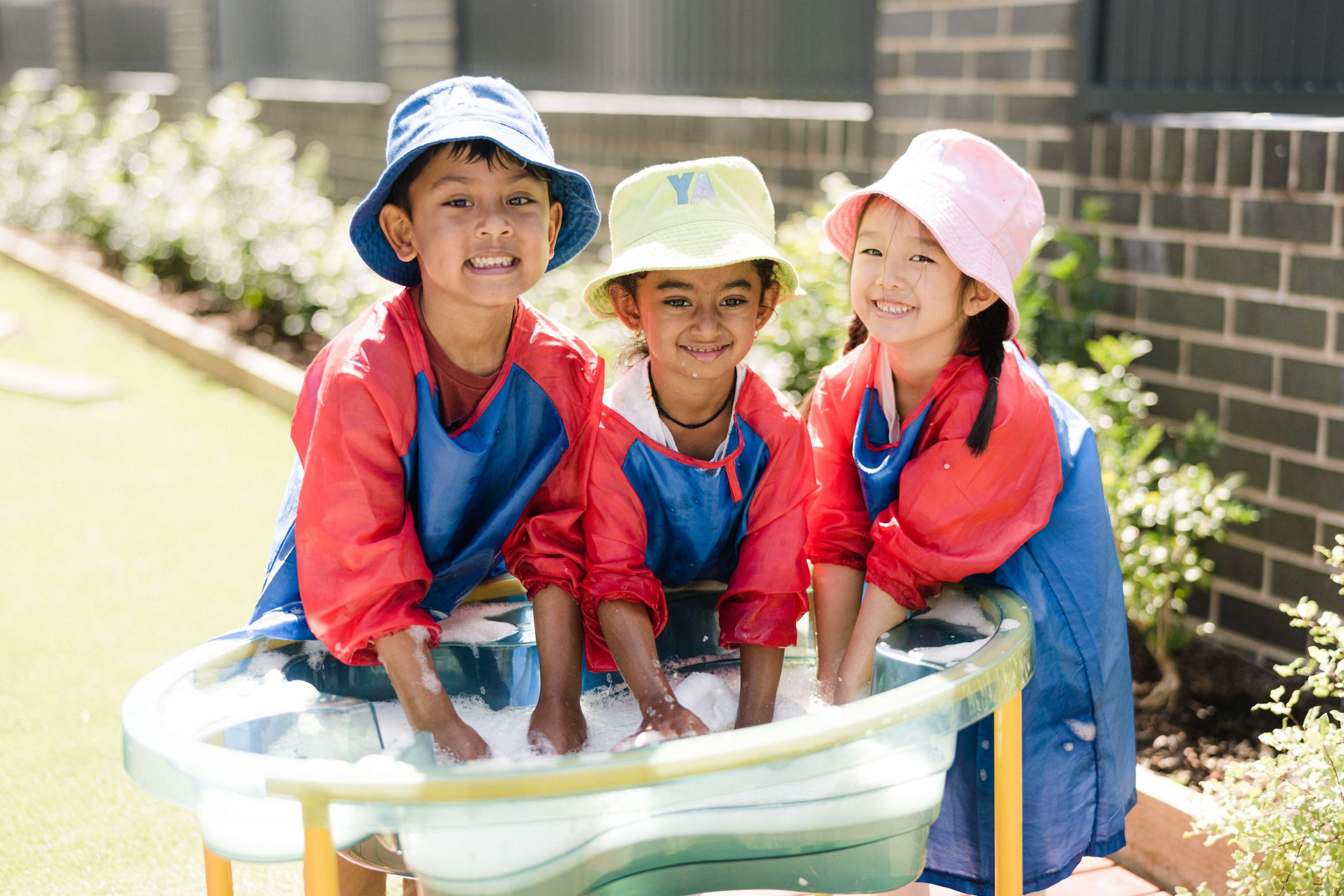





 BACK
BACK